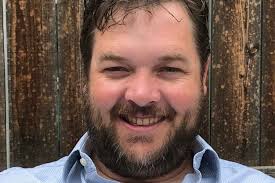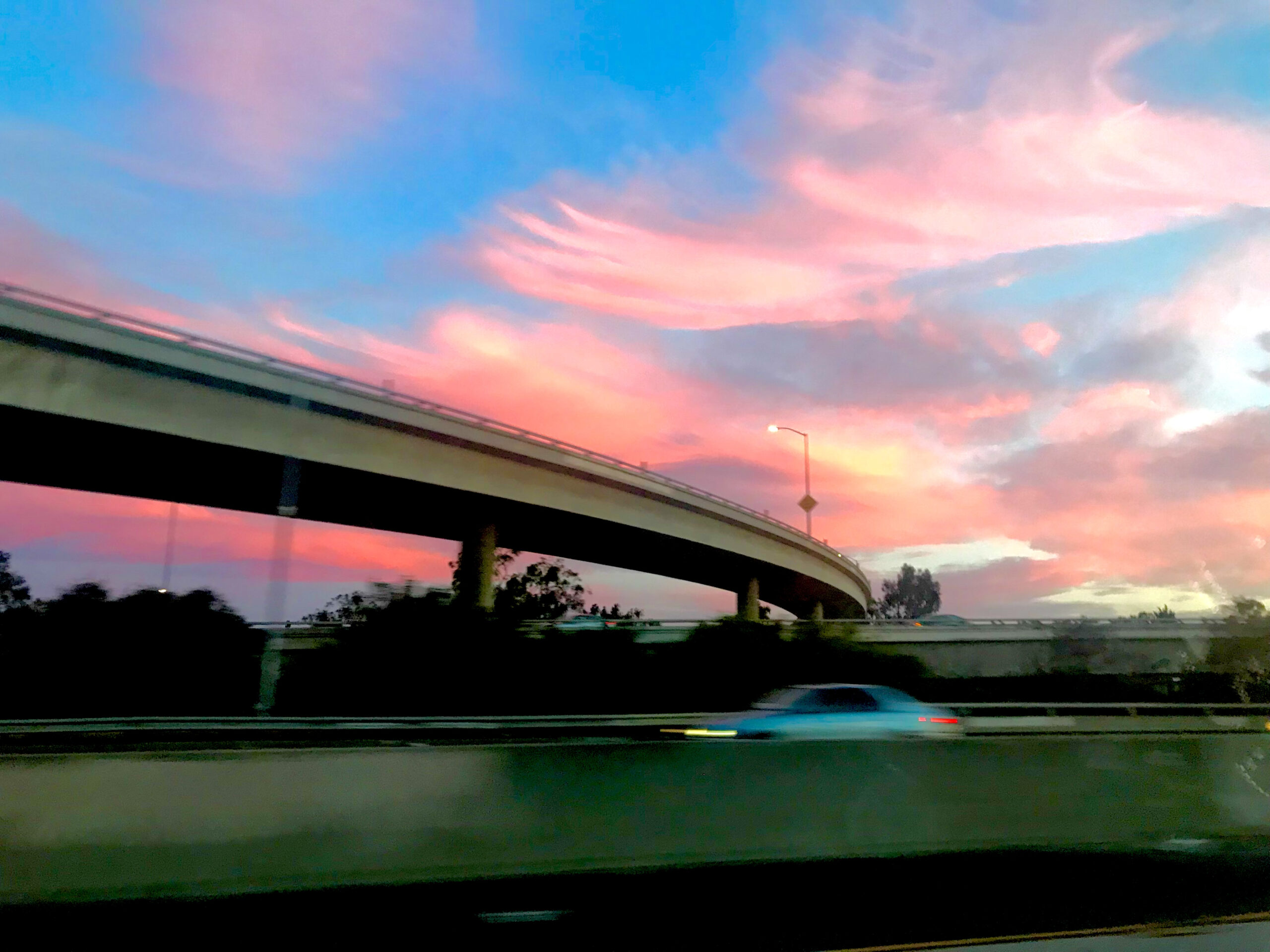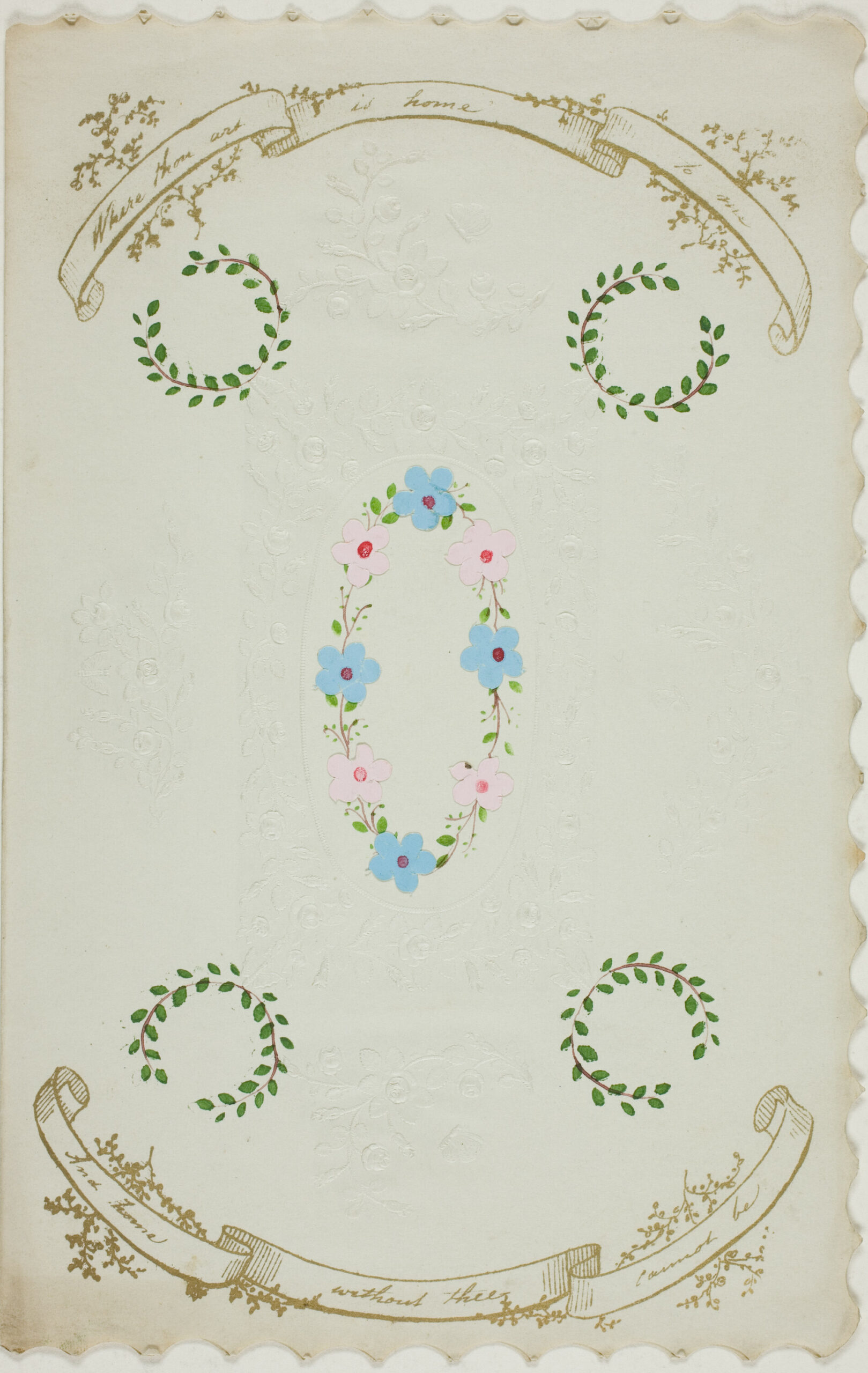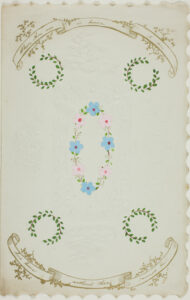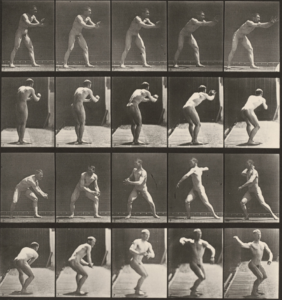Susie Revisited
by Peter Galligan
About fifteen years ago, after my aunt passed, I took possession of her creative writing. It wasn’t until last year that I finally got up the nerve to sort through it all. I poured over the stacks of pages in crates, mostly finding unsalvageable, incoherent story fragments. When I found her student work, though, at the bottom of the last crate, I discovered a poem, a simple sonnet, that gave me chills, a piece I keep returning to.
On the cover of several collections of poems and journals from high school, Susie wrote “Dreams Full of Promises, Hopes for the Future Faded Memories” as a sort of catchphrase. For one particular collection of poems, she put this catchphrase on blue laminated labels with raised type and glued the labels to the thick green cover of a slim three-ring binder. The poems were carefully arranged on the page, the letters crisply inked from a typewriter. Some had titles, some didn’t, but each poem was signed after the end line with her initials. The arrangement suggested to me that this was not a first draft, or a second. Every page was placed in plastic binder sleeves, but the plastic wasn’t enough to keep the paper from foxing to a dull beige over the years.
As one would expect from a teenager’s work, the writing overall was a bit uneven. Unexpectedly strong lines emerged among the flowery, pastoral, teenage clichés. There was a talented voice in the work, but it was young and underdeveloped, leaning on angst-love and sunrises, darkness and chasms, rainbows and reflections. Susie’s efforts were strikingly similar to the care that I took as a self-assured writer in my halcyon adolescence when presenting my polished words. In my own poetry, the first piece of a collection always held special meaning. And I could see why Susie led off her manuscript with this particular gem:
Ozymandias Revisited
They came from the edges of oblivion for hope
And were met at the “Golden door” by men who
Would strip them of their pride and lay bare
The sweet meat of their feelings. By mechanical
Beings that would preach to them- – give them
Opinions in place of their own. Place them in
Cracker-jack homes where the prize is a
Plastic love that snaps when you use too much.
The land that once was rich is now given over
To weeds- – the air that once was life-giving
Now threatens our existence, and the lady with
The cracked robes still reigns the polluted waters
But her arms kind of tired now, and who will care
If she takes a nap, but the light in the lamp is low.
SG
There was a small, blue mark above the phrase “But her arms kind of tired now” as if Susie continued adjusting the meter and phrasing after typesetting the work. I related to Susie’s compulsion to edit and fix and scratch at the manuscript until the damn thing bled. I was seized by the image of the “plastic love that snaps when you use too much,” the description of Lady Liberty’s “cracked robes.”
And I was thrilled to have found the writer my aunt was, and could have been. The poem in its loose sonnet form echoed the fourteen lines of Emma Lazarus’ “The New Colossus” scribed on Lady Liberty’s pedestal. I searched for the titular Ozymandias and learned that my aunt’s work also recalled competing sonnets penned by Percy Shelley and Horace Smith. I reviewed Lazarus, and I read Shelley and Smith for the first time. Then I returned to my aunt’s fourteen lines, amazed on how well this poem of hers, penned maybe fifty years ago, held up.
Not long after I found this poem, I asked my brother about the day he found Susie.
It was shortly after she returned from an unsuccessful trip to the Mayo Clinic to treat her chronic pain, and Susie was unreachable by phone. Tim drove to her townhouse. He knocked on the front door. He rang the doorbell. No one answered, so he went around to the back.
“Somehow I was able to get in,” Tim told me, “I walked around and saw her on the couch…like she was sleeping. She was breathing. But I couldn’t wake her up.”
He called 911, and an ambulance took her away.
“She had two fentanyl patches on,” he said, adding, “The pain…it started with the wrist, some calcification or something,” he reflected, “I think the fibromyalgia was real.”
I knew all of this, but I’d never heard it from my brother.
Susie was taken away in an ambulance, and the last time I saw her, she was in a coma, cachectic, more hospital gown than flesh. And there we were, gathered around her, her nephews and nieces, her brother and her sister-in-law, watching the medical instruments, following the travel of her oxygen level, up and down. I remember discussions among our family about her heart rate, finding some renewed hope every so often when it would steady, becoming fearful when it began to drift.
At some points during our visits into her hospital room, Susie appeared to weep while her eyes remained closed. She cried when we spoke, as if she was responding to us with an absolute, final anguish. We were assured she was brain dead, that her crying had nothing to do with our conversations or any pain. She wasn’t in pain, we were told. This I didn’t believe. Not with the way she cried.
I wish I could have asked Susie about the pride of the Statue of Liberty as a proxy for the hubris of the pharaoh Ozymandias. I don’t believe that the state of American ruin Susie expressed is the same decay I see now. Unlike Ozymandias’ antiquities, the ruins of America seem perpetually renewed. Monuments fall that should have never stood, new and gaudy ones take their place. I see the same pandemics, such as prescription opioids, burning quietly on as novel pandemics prevent us the privilege of gathering around our dying family members as they weep through their last breaths. I see new cracks in the symbols of America. And nothing is ever fixed. Nothing ever perfected. Instead, there is pain erased by voices of authority gaslighting us into believing that we are incapable of feeling anything, that our nervous systems are just overwhelmed. The image from Susie’s poem that does echoe so true now is of this great monument of liberty abandoning her post because she is tired and she assumes that no one will care.
In the other piles of Susie’s writing, there are seven thick plastic-covered binders with typed manuscript pages, comprising a portion of one hefty novel, her tome, with pages numbered from 317 to 2068. There are loose papers, booklets printed during the era of Windows 97 and clip art and ready-made greeting cards for inkjets. The pages typed on a typewriter are bound primitively, with laminated cover art. There are journals with thick fake-leather or cardboard covers, the sort of thing you gift the aspiring writer in your life. There are legal pads tucked into plastic covers, notes and first drafts scrawled onto the first few pages, with the rest of the paper untouched, ready to use. It is distressing to see these piles and think about the amount of work put into creating a chaotic mess of words to be left wasting away in obscurity. It is at least in part the reason I return to her sonnet – that by finding some of those words deep enough to return to, that by appreciating the small organization of fourteen lines, I can keep the bleakest thoughts of futility at arm’s reach a little longer.
In her sonnet, Susie lamented that the lady is tired, and “who will care if she takes a nap,” and I picture our torch girl wearing a tan brace on the arthritic wrist that grips the copper flame. She steps off the pedestal and sets her tablet, her last promise of independence, by the words of Lazarus, the lost promise of huddled masses yearning to breathe free. She steps into the river to rest, sinking below the polluted, air-bridged harbor, suffering a pain we cannot know, her best work tucked safely away under those cracked robes.


